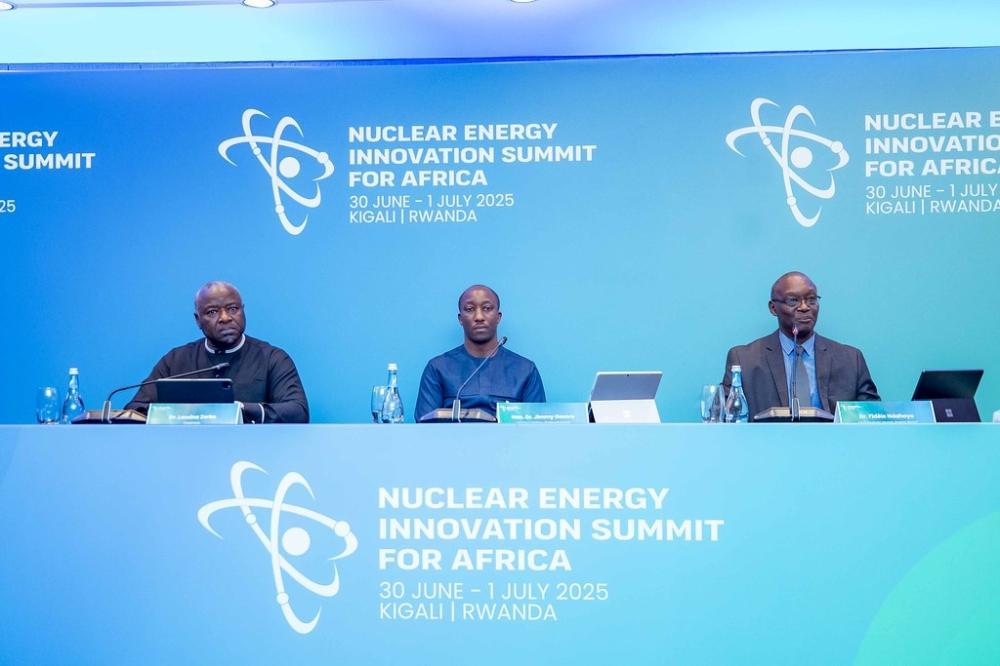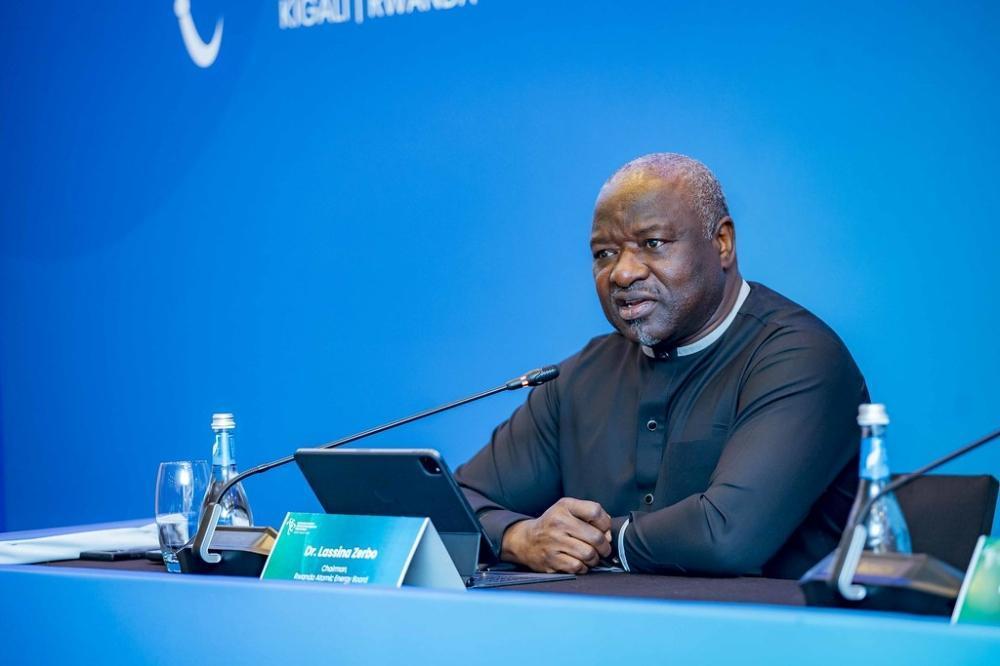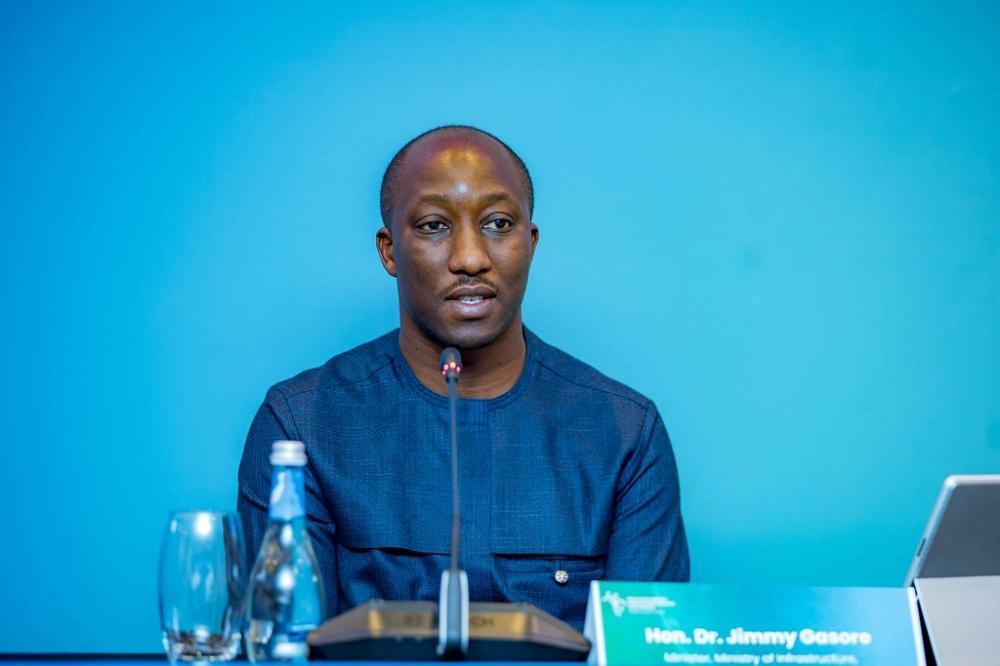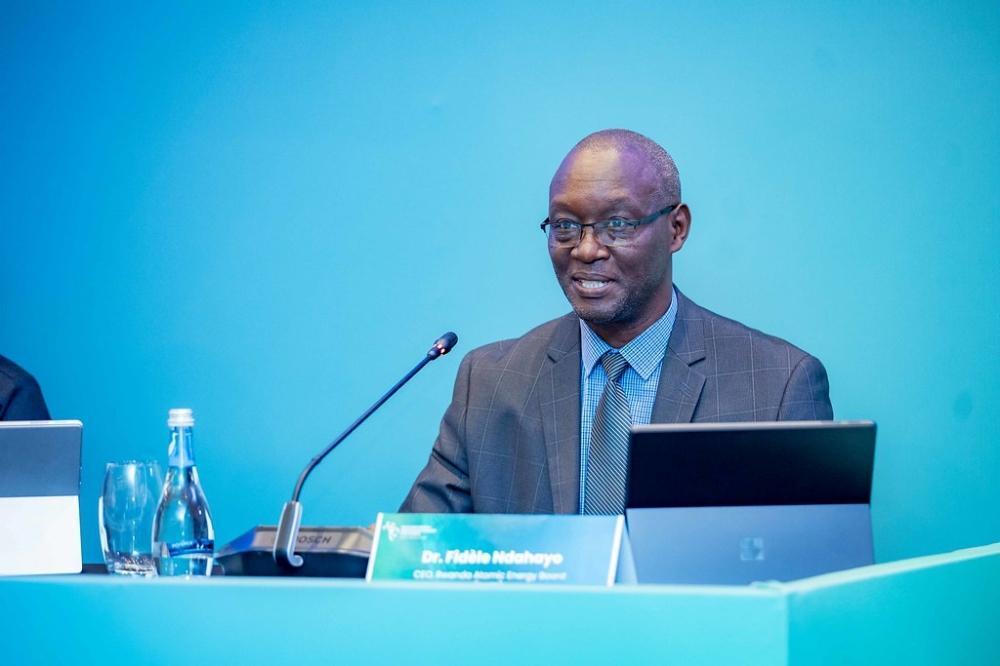Africa-Press – Rwanda. Rwanda will next week host a high-level nuclear energy summit that will convene African policymakers, international experts, scientists, and industry stakeholders to explore the role of advanced nuclear technologies in addressing the continent’s growing energy needs.
The Nuclear Energy Innovation Summit for Africa, due on June 30-July 1 will take place at a time of increasing interest in clean and reliable energy sources across the continent. Discussions are expected to focus on the potential deployment of Small Modular Reactors, which are viewed as a safer and more flexible alternative to traditional nuclear power plants.
Rwanda, which has been exploring the deployment of nuclear technologies for years, is positioning the summit as a platform to foster regional dialogue and encourage cross-border cooperation in the peaceful use of nuclear energy.
The gathering also aims to build consensus around regulatory harmonization, infrastructure readiness, skills development, and financing models needed to advance nuclear power as part of Africa’s energy transition, according to the organizers.
Dr. Lassina Zerbo, Chairman of the Board at the Rwanda Atomic Energy Board
“The Nuclear Energy Innovation Summit for Africa is a pivotal moment,” Lassina Zerbo, Chairperson of the Board at Rwanda Atomic Energy Board (RAEB), told a news conference on Thursday, June 26.
“We are convening to demonstrate Africa’s leadership, commitment, and capacity to shape a bold, clean energy future, powered by innovation and focused on sustainable development for all.”
Although South Africa is the only African country that currently operates a nuclear power plant, Zerbo pointed out that several governments have expressed interest or launched preparatory programs.
Egypt is constructing its first nuclear power station at El-Dabaa, while South Africa operates the Koeberg plant near Cape Town.
Ghana, Nigeria, Kenya, Uganda, and Rwanda are among the countries that have signed cooperation agreements or initiated feasibility studies with international partners.
According to RAEB, the Rwanda views nuclear science and technology as a long-term component of its energy mix and development strategy, particularly in light of rising electricity demand, industrialization, and commitments to reduce carbon emissions.
The summit, officials said, will offer a timely opportunity for African countries to exchange experiences and consider joint approaches.
“Cooperation is essential if Africa is to safely and responsibly integrate nuclear power into its future energy mix,” according to Jimmy Gasore, Rwanda’s Minister of Infrastructure.
“This summit is not only about Rwanda, but also about the continent’s shared ambitions and challenges in embracing this technology.”
Small Modular Reactors (SMRs), which typically produce up to 300 megawatts of electricity per unit, are seen as particularly suitable for countries with small or isolated grids. The production of one megawatt needs an investment of at least $2 million.
SMR design allows for phased deployment, and proponents of the technology argue that it offers enhanced safety features and more manageable capital costs compared to conventional nuclear plants.
Dr. Jimmy Gasore, Minister of Infrastructure during the conference
SMRs is seen as very appropriate for Africa, Gasore said. Capable of generating between 10 megawatts and 300 megawatts, SMRs are very small compared to the typical conventional nuclear plants, which can go above 1000 megawatts.
“When you look at our grid, for instance,” the minister argued, “it would be very difficult to accommodate 1000 megawatts without another investment. But small and medium reactors can be easily integrated.”
“We also look at other requirements like the size of land. SMRs can also be deployed as a mini-grid or in remote areas.”
However, officials warned, significant barriers remain. These include high upfront investment, long development timelines, and the need for specialized regulatory and technical capacity.
Rwanda has set out an ambitious plan to set up a nuclear plant by 2030. Minister Gasore added that several Rwandan engineers are being trained in different countries, such as China, Russia, Korea, and Hungary.
A prefeasibility study was also commissioned to assess the country’s topography, grid, among other factors, to be considered before the nuclear technology is deployed.
Industry experts attending the Kigali summit are expected to examine how African countries can build the institutional frameworks required to regulate, license, and monitor nuclear power.
The summit will also discuss how to ensure that any nuclear energy deployment aligns with international safety standards and non-proliferation obligations.
“Financing is already an issue, but we see innovative solutions such as tokenization, which has been practiced in the Middle East,” Zerbo said.
In 2022, Rwanda signed an intergovernmental agreement with Russia’s Rosatom to establish a Center for Nuclear Science and Technology, aimed at building national capacity in non-power applications such as research, agriculture, and medicine.
The country has also signed cooperation agreements with other partners, including the IAEA and Canadian-based SMR developer Dual Fluid.
Beyond electricity
Dr. Fidèle Ndahayo, Chief Executive Officer of the Rwanda Atomic Energy Board (RAEB)
Nuclear energy is not only used to produce electricity, according to Fidel Ndahayo, chief executive of RAEB.
“There are other non-energy applications of nuclear energy, such as in medicine, agriculture, mining, among other areas that play a role in boosting the socio-economic development of our country,” Ndahayo told reporters on Thursday.
Currently, Ndahayo said, a site has been identified where a nuclear research center will be set up and which will be leveraged to boost non-energy applications.
For More News And Analysis About Rwanda Follow Africa-Press









